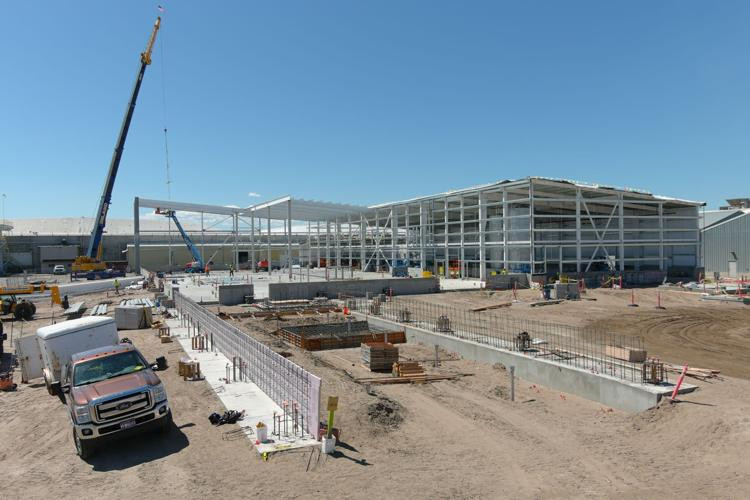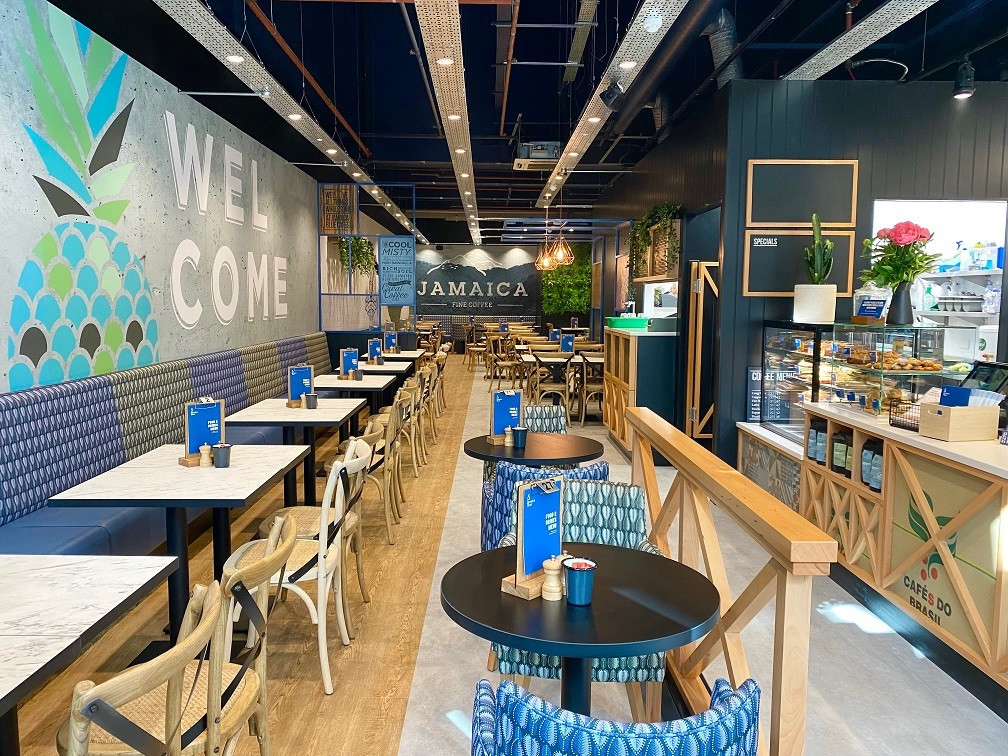Fast-Food Sales Slowdown Hurts French Fry Supplier Lamb Weston
Americans are revolting against McDonald’s and fast-food chains. That’s hurting french fry suppliers like Lamb Weston.
Lamb Weston, the largest producer of french fries in North America and a major supplier to fast-food chains, restaurants and grocery stores, is closing a production plant in Washington state. The company announced last week that it would lay off nearly 400 employees, or 4% of its workforce, and temporarily cut production lines in response to slowing customer demand.
Shares of Lamb Weston (LW) have dropped 35% this year.
The potato giant is oversupplied at a time when demand is sluggish. Restaurant prices in recent years have increased faster than grocery store prices, leading customers to pull back at fast-food chains.
The Impact of Inflation on Fast-Food Consumption
This shift has taken a toll on Lamb Weston because people are less likely to cook french fries at home. Around 80% of french fries consumed in the United States come from fast-food chains, according to Lamb Weston.
Fast-food chains like McDonald’s are dangling value menus to try to lure customers back. McDonald’s has launched a $5 meal, which includes a McDouble cheeseburger or a McChicken sandwich, small french fries, 4-piece chicken nuggets and small soft drink. But these deals aren’t helping Lamb Weston because people are buying smaller portions of fries.
“Many of these promotional meal deals have consumers trading down from a medium fry to a small fry,” Lamb Weston CEO Thomas Werner said last week on an earnings call.
Lamb Weston did not immediately respond to CNN’s request for comment.
McDonald’s, its largest customer, accounts for 13% of Lamb Weston’s sales. As McDonald’s goes, so goes Lamb Weston.
And McDonald’s is struggling. Sales at US restaurants open at least a year fell 0.7% last quarter from the same period a year earlier, dragged down by fewer customers visiting the chain.
More Than Just McDonald's
Lamb Weston is also highly exposed to other fast-food chains, analyst R.J. Hottovy at analytics firm Placer.ai said in a research note to clients last week.
Customer traffic to fast-food chains dropped 2% last quarter and 3% the previous quarter compared to the same time last year, according to Lamb Weston.
The Ripple Effect of the Closure
The sudden closure of Lamb Weston, one of Connell's largest employers, has sent shockwaves through the small community, leaving 375 workers without jobs and raising concerns about the future of the town’s economy. With a population of just 5,000, the impact on Connell is immense, and city officials are rushing to find ways to soften the blow for the laid-off employees.
Lamb Weston was a cornerstone of the local economy, providing jobs and significant revenue for the city through utility payments and other contributions. The loss is staggering, especially given that Lamb Weston was the second-largest employer in Connell, behind only Coyote Ridge Corrections Center. The effects of the closure are expected to touch every part of the community.
Mayor Lee Barrow spoke candidly with KEPR about the challenges Connell now faces. "We want to do everything we can to help them out. You know, we'll work with them with utility bills, whatever we have to, and we don't know the final impacts, but we know that, potentially, it could affect retail, future development, our schools. We hate to lose that many jobs here in the city of Connell; it could be very impactful."
The financial hit to the city is substantial. Mayor Barrow detailed the losses, including $580,000 in water usage revenue and another $120,000 in utilities like gas and electricity. The city's ability to maintain essential services—such as roads, water, and sewer systems—will now be tested.
"By Lamb Weston going away, it doesn't make the work for our utility workers any less. We still have to maintain roads, sewer, water, so we got to figure that out. And it will be a big impact, as well as with our general fund, so we're just making the cuts where we can, and it's going to be hard," Barrow added.
The ripple effect extends beyond city hall, impacting local businesses and institutions. Dale Kuehny, co-owner of The Old Brick Store, expressed concern about the uncertain future. "Lamb Weston is a big part of the city here. So, it's quite a blow. We'll see how it impacts our business, but it's not going to be good I don’t think, I can't imagine it being good. The church I go to is going to be affected, just because almost every family in Connell is going to be affected one way or another."
In response, the city is mobilizing efforts to support the workers who have lost their jobs. Mayor Barrow announced that a job fair will be held later this month, and all former Lamb Weston employees will be invited to participate. The event is intended to connect the displaced workers with potential employers in the region and provide a lifeline during this difficult time.
Adjusting to a Slowing Market
The restructuring comes as the supplier of frozen potato products faces sluggish demand for its offerings at restaurants and retailers.
Lamb Weston plans to close an older, higher-cost processing facility in Connell, Washington and temporarily curtail certain production lines and schedules across its North American network. It also plans to cut 4% of its workforce, or roughly 428 jobs, and eliminate unfilled job positions. The Idaho company employed 10,700 people as of July 17.
The supplier of frozen potato products to restaurants and retailers said demand, relative to supply, continues to struggle. “We believe it will remain soft through the remainder of fiscal 2025,” Tom Werner, Lamb Weston’s CEO, said in a statement.
Lamb Weston is the most recent food company to reduce staff and close outdated production facilities in an attempt to lower operating costs and match output with slow consumer demand.
Adapting to a Challenging Economic Landscape
With consumers eating out less and cutting back on spending, food producers such as Lamb Weston are wasting little time making changes to their business.
Companies face pressure to increase margins and sales, even in a challenging economic landscape. In many cases, businesses are looking internally for ways to reduce their costs.
Lamb Weston said with little near-term improvement in sight, it opted to implement a restructuring plan to drive operational and cost efficiencies and boost cash flow. The overhaul will generate approximately $55 million in pre-tax cost savings and a reduction in working capital in fiscal 2025.
“We expect these actions will help us better manage our factory utilization rates and ease some of the current supply-demand imbalance in North America,” Werner said.
Several companies have announced changes to their manufacturing network in 2024 to cut costs and position their businesses for growth.
In July, Wonder maker Flowers Foods announced plans to close a bun making plant in Louisiana, while Bimbo Bakeries USA, which oversees Entenmann’s and Sara Lee, will shutter two facilities in New York and another in Texas. Dr Pepper also has announced plans this year to shutter manufacturing plants in Virginia and Vermont while investing in its coffee roasting and manufacturing facility in South Carolina.
Campbell Soup said in May it was closing one plant and reducing the size of a second facility. At the same time, the soup and snacks maker announced it would invest $230 million through fiscal 2026 in newer, more efficient plants to improve the competitiveness of its supply chain.
The Future of Fast Food
The closure of the Lamb Weston plant in Connell, Washington, is a stark reminder of the challenges facing fast-food chains and their suppliers. As consumers grapple with rising prices and economic uncertainty, they are increasingly choosing to cook at home or opt for cheaper alternatives. The days of a large french fry order may be fading, as fast-food companies scramble to find new ways to attract customers and keep their sales afloat. Only time will tell if these chains can weather the storm and return to their former glory.

















